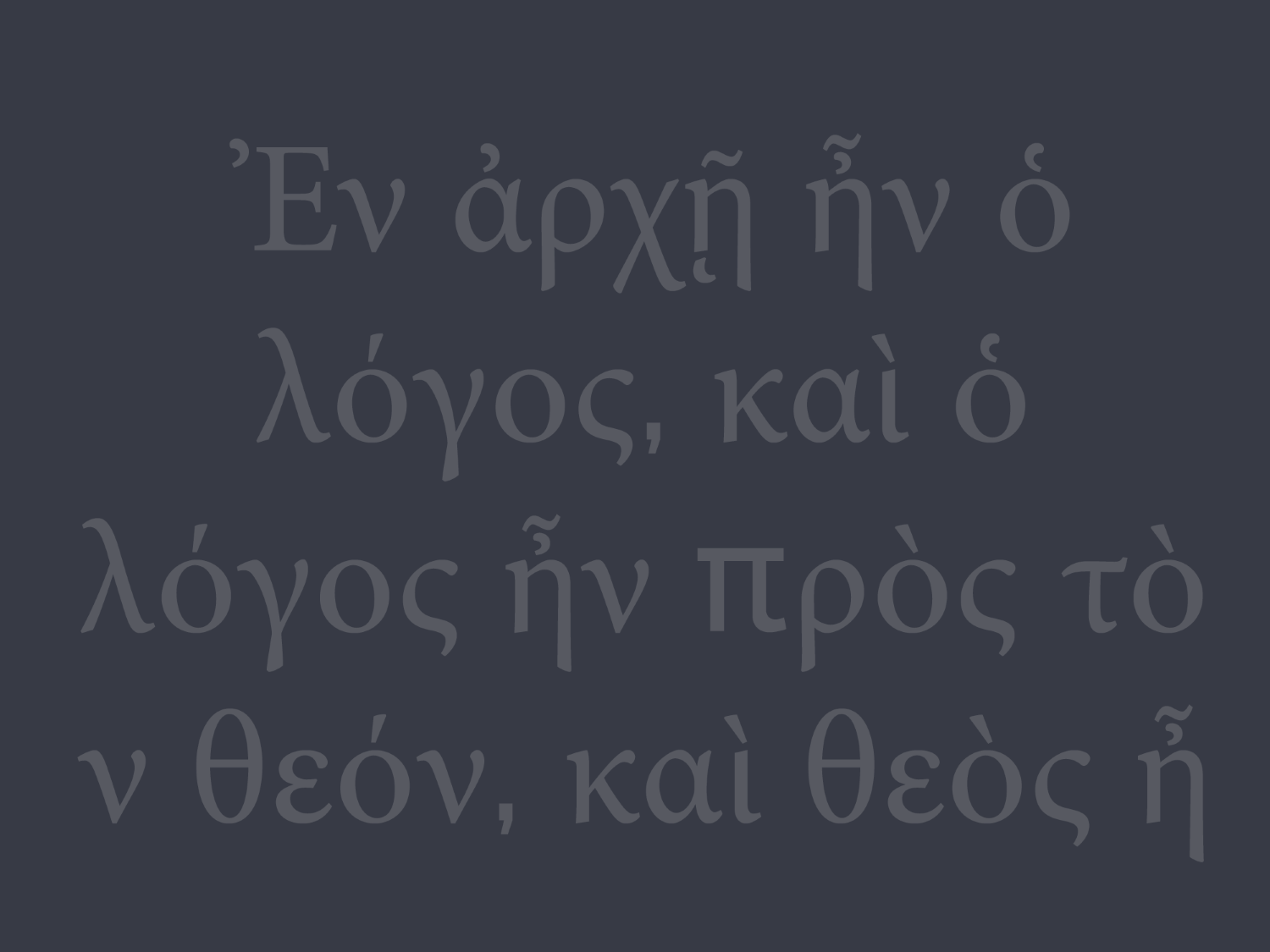Interested in learning Biblical Greek? BibleMesh Biblical Languages will guide you to become a confident reader of the biblical text—and it begins with taking your first steps.
Find out more and get our Greek First Steps course for free.

Philemon Zachariou
A native Greek, a retired Greek professor, and the author of Reading and Pronouncing Biblical Greek: Historical Pronunciation versus Erasmian.
He currently develops New Testament Greek instructional material, is an adjunct professor of English at Northwest University, and a BibleMesh Greek Teaching Fellow.
Tapping into Modern Greek can shed light on the New Testament text in sundry ways. An example is the words King Agrippa directed at Paul before the Sanhedrin according to Acts 26:28. Agrippa’s expression, the essence of which is preserved in Modern Greek, is idiomatic in nature. Thus a technical analysis of the type of action indicated by the verb alone cannot fully convey Agrippa’s intended message to Paul:
ἐν ὀλίγῳ με πείθεις Χριστιανόν γενέσθαι[1]
“You nearly persuade me to become a Christian!”
Let us first look at the action expressed by the conative present πείθεις “you are persuading.” A conative verb suggests that an action is begun, attempted, or intended, which naturally suggests that from the narrator’s perspective the action expressed is incomplete, hence imperfective in aspect. Here πείθεις apparently indicates that Paul was making attempts to persuade the king to become a Christian. According to this view, Agrippa’s remarks indicate that Paul was very close to persuading him to become a Christian. Besides, one cannot fail to see that Agrippa’s expressed admiration for Paul’s stunning apologetics was genuine—or, was it?
A similar expression in Modern Greek can shed some light. Today one can say, παραλίγο (= παρ’ ὀλίγον) να με πείσεις “you’ve nearly persuaded me” or παραλίγο να σε πιστέψω “I almost believe you,” an idiomatic expression similar to that used by King Agrippa. This expression, having preserved its sardonic overtones through time, points to the likelihood that King Agrippa’s remark, by which he also abruptly stopped Paul’s speech, is no indication that he was on the verge of becoming a Christian. On the contrary, and as the whole scenario indicates—moments earlier Governor Festus had called Paul “mad” (26:24)—there is an element in Agrippa’s expression that is crucial in interpreting what Luke is telling us about the King’s mindset. That crucial element is the prepositional phrase ἐν ὀλίγῳ.
Translators render ἐν ὀλίγῳ literally as in a little while, in a short time, etc., attributing to ὀλίγον a temporal sense as in James 4:14, 1 Peter 1:6, and Revelation 17:10. A literal translation of this prepositional phrase, however, fails to take into account its special idiomatic sense as part of the entire expression. Seen in its full context, Agrippa’s irony, though civil in expression compared to that of Festus, is no less acerbic at its core. The king was mocking Paul for what Agrippa viewed as a foolish faith.
Modern Greek is a direct descendant of Hellenistic Greek, that is, the “koine” of New Testament times. Thus it preserves a plethora of linguistic elements that can be traced back to the New Testament text. Many New Testament insights therefore can be gained by tapping into Modern Greek. As Hasselbrook notes, “A unity exists between the New Testament and Modern Greek that should not be ignored or left unexplored.”[2]
Coincidentally, the KJV translates ἐν ὀλίγῳ right: almost.
[1] γενέσθαι (Textus Receptus); ποιῆσαι (Nestle).
[2] David S. Hasselbrook, Studies in New Testament Lexicography: Advancing toward a Full Diachronic Approach with the Greek Language. (Germany: Mohr Siebeck, 2011), 48–49.
Interested in learning Biblical Greek? BibleMesh Biblical Languages will guide you to become a confident reader of the biblical text—and it begins with taking your first steps.
Find out more and get our Greek First Steps course for free.
